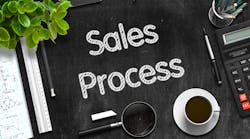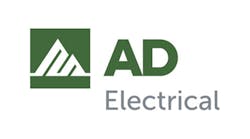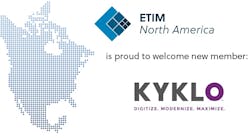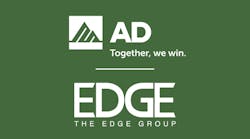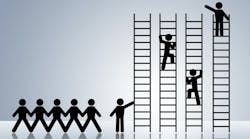The route to better counter days and in-house trade shows includes lots of advance planning and diligent measurement--here's how to get the most out of your investment.
Consultants and commentators occasionally like to joke about how distributors lack the sort of marketing sophistication considered routine in other businesses. Indeed, most electrical distributors aren't well versed in the nuances of database marketing, blind focus groups and such, and don't see much need to be. All the same, they get customers in the door, take care of their needs, and generally get the job done.
The truth is that even in a marketing world revolutionized by technology, many of the old ways of getting a message to your customers still serve their purpose. Take, for example, the nearly universal and time-honored tradition among electrical distributors of holding counter days and in-house trade shows. Creating a special occasion where customers can talk to manufacturers and reps about the products they buy and see the latest offerings on the market in a casual and festive setting is still one of the most effective ways of generating sales and cementing relationships with customers.
The advent of the Internet and electronic communications have not replaced live to-dos, but some distributors have found new ways to mix the latest technology with generations of accumulated wisdom to improve the effectiveness of their shows. Electrical Wholesaling talked with some of these modern masters to gather insights and ideas you can use to make the most of your next event.
The first rule is to plan ahead. Plan further ahead than it seems you should have to. If you will be holding any of your events offsite at a convention center or hotel, you may have to book a location eight to twelve months in advance, so before you get to that point, figure out what kind of events you want to have over the coming year. Shows and events should be part of an overall marketing strategy, coordinated with seasonal promotions, mailings and other marketing efforts. Some distributors host major in-house trade shows featuring a number of their vendors yearly or every few years, augmenting that schedule with regional association trade shows, monthly counter days, golf outings and training seminars in between, but you have to find the mix that's right for your company and its customers.
At Standard Electric Supply Co., Wilmington, Mass., the marketing team sits down and identifies which segments of the company's customer base will be targets for the year's promotions. The group then determines what the objectives of the events should be, says Dennis Miller, vice president of marketing. "The basis for determining what would be on the schedule is first to identify who your targeted customer base is, and what relates to them. What is your objective? Is it to develop market share with the existing customer base, is it to turn potential customers into new customers?" For a diversified distributor such as Standard Electric Supply that takes care of a wide range of customer types, it's a good idea to keep a balance. "There's an ROI (return-on-investment) factor too. We want to make sure we're targeting a market that we're going to get a return on and that there's a large enough opportunity there for us."
The mix of customers you target will determine the nature of the events you stage. Each of the different types of promotional events has its strengths and weaknesses. Golf outings, for example, tend to be most effective for cementing relationships and rewarding customer loyalty, Miller says. Major trade shows such as Standard Electric Supply's Tech 2000 trade show this year and seminars are good places to bring new or prospective customers to introduce them to your company and its capabilities.
Much of the event schedule will depend to some extent on which products and which vendors you plan to highlight in promotions during the year, an important decision often influenced by the seasons, customer mix, new product introductions, buying group affiliations and so forth. Branch Group, Upper Marlboro, Md., allows the branch manager of each branch to select vendors for counter day promotions froma list of first- and second-tier vendors, says Ken Cain, vice president of marketing. "We try to make sure each manufacturer gets a reasonable amount of exposure over the course of 12 months."
Most distributors who have a counter business have regular counter-day promotions featuring products of interest to the small to medium-size contractor market. Normally factory or independent reps will be on hand to talk about the features and benefits of the products with customers. At Standard Electric Supply the counter days are heavily influenced by the weather, Miller says. The company has heater promotions in the winter, fan promotions in the summer, depending on how customers' needs change over the course of the year.
Missouri Valley Electric Co.'s annual parking lot picnic also depends on fair weather, and thanks to the Old Farmer's Almanac, the event has seldom seen any rain, says Ray Hawkins, vice president of marketing for the Kansas City, Mo.-based distributor. It's Hawkins' responsibility to pick the date each year.
For big shows that depend on space availability and attendance by large numbers of customers and vendors, you'll want to lock in the venue and date first. It's best to schedule events on a Tuesday, Wednesday or Thursday, says Peter Bellwoar, vice president of sales for Colonial Electric Supply, King of Prussia, Pa. "Mondays and Fridays are generally bad days to have an event, because lots of people are elsewhere on those days. We've found we have more success in the middle of the week."
There are divergent points of view on what is the best venue for major distributor trade shows, but they generally fall into two channels-do it at home to save the expense and strengthen the customer's identification with your warehouse and the bones of your operations, or do it at a hotel or convention center to get the benefits of a professional presentation and food service staff and to spare your warehouse workers the aggravation of trying to do business around all those booths or show tables.
Colonial Electric Supply does two to three trade shows a year focused on different market segments. The company's datacom show last month was scheduled to include about 30 vendors and Bellwoar was expecting to host about 350 people over the course of the day. He reserved rooms in a local hotel with banquet facilities, which got the operations out of the way of the warehouse staff and into the hands of a professional banquet staff. Standard Electric Supply likewise moved its big annual trade show out of the warehouse and into a local hotel ballroom this year. "It just became too cumbersome and required too much work internally. It was too much business disruption, frankly. And we had parking issues. We liked getting people into our facility to see what we're all about. We think our facility and our organization differentiates us from our competition, but the value to me was far outweighed by the aggravation and trouble it would cause and the fact that we really were not set up to facilitate this type of show."
Professional venues add a touch of class and remove some of the hassles, but they cost money and can seem generic. For counter events, this is no problem. The counter events give customers something to do and may even teach them something new while they're waiting for their order to be picked and processed.
Eight to ten months prior to a big trade show you should prepare your marketing list and coordinate the schedule with your manufacturers, enlisting their support and cooperation, getting them involved in the theme if it's that kind of event.
Who to invite is an important question. Events can be focused on developing a particular market niche. Intermixed with trade shows and counter days, Colonial has invitation-only events tightly focused on education, but for its big trade show held every three years, Bellwoar says he's trying most to reach the marginal customers. "I know what share I have of the market, I have a less-than-ten-percent market share. That's 90% of the people aren't buying from me on a regular basis.I gotta find some way to get their attention. This is a way to develop new customers, and if I have a peripheral or bubble customer, this is a very good way to reach them, too. I've got some very good customers who came to me this way."
For the trade show kind of venue, attendance is the name of the game, and there are many tricks and gimmicks that have come and gone over the years to get people in the door. Big trade shows beg for big themes, and it takes some creative thinking to sidestep the cliches. The trick is if you're going to embrace a cliche, do it in a big way.
Pay attention to shifting demographics among your customers. For example, from time immemorial, bringing in cheerleaders from the local semi-pro sports team to sign posters was a sure-fire way to get contractors in the door, but that has begun to change, says Bellwoar. "We've found that doesn't send the right message. This industry is changing. There are more women than in years past. We've got some customers who've told us they really don't appreciate that kind of thing," he says. Some of the big favorites right now include NASCAR racing and gambling, and a sports theme is a perennial draw.
Occasionally an energetic electrical distributor has been known to set up an elaborate miniature golf course throughout the warehouse, and computerized golf-tee driving machines and batting cages are now available to rent. Company trade shows have grown into so large a business that companies exist now that do nothing but put on other companies' trade shows. Standard Electric Supply hired a company to run its casino night at Tech 2000. The company provided dealers, tables, cards, chips, the works. After spending some time at the blackjack tables, customers could cash in their chips for promotional hats, T-shirts and other merchandise.
More than clever themes, perhaps the single most powerful draw is education. Many distributors say the most effective and reliable way to bring in customers is to combine technical seminars with a trade show. Seminars are extremely powerful for getting people to spend time at your event and for sending them away with a strong sense of time well-spent. Many customers will send people to a training seminar when they wouldn't as readily send them to a party. It makes your customers more comfortable and knowledgeable about your products, lets you show off the best new stuff and enhances your stature as a distributor. Knowledge really is the most important thing you sell.
For its datacom trade show this year, Colonial Electric Supply offered four training seminars on datacom installation, cabinetry, cable management, category cabling and fiber optics, plus a course offering contractors certification as certified installers of equipment manufactured by AMP, Inc., Harrisburg, Pa.
Some companies use a mix of hired speakers and experts, manufacturer technical aces and their own specialists to combine breadth, depth and personal contact. Branch Group has an outside speaker present a seminar on the electrical code at its big trade show held every three years offsite. This year's venue features over 100 vendors in a 125,000-sq-ft convention hall.
Charging a fee for the seminars seems to further enhance the perceived value, Bellwoar says. Someone who has a toothache is pretty likely to pass on a few hours of walking down standard trade show aisles of booths, but if that same someone has paid $125 to attend a certification course, he is more likely to put up with the toothache and attend anyway, Bellwoar says. Colonial Electric Supply charges a fee for its seminars, but gives the money back in a credit if the customer later buys a product.
Before you get people in the door, you should also be giving some thought up front to how you're going to measure success when the table skirts are packed away, and you should prepare for those measurements ahead of time. What you measure will vary depending on the type of event. Some companies measure trade shows in terms of attendance, floor sales, seminar registrations and feedback forms, and sales to individual registrants. Therefore the relevant documents have to be in place so you'll have something to track. Counter events and the like generally are less specific, so measurement tends to focus on month-to-month and same-month-last-year sales figures for a particular product. Golf outings and the like are relationship-builders normally reserved for loyal customers-you don't usually look for a direct payoff. You have to know what you want to get out of it, but the important thing is that you measure your event's performance.
"Without the measurement component, you can run as many fliers, sales and counter days, seminars, trade shows and golf outings as you want. You have to have at least some level of accurate measurement in place," says Miller. There are some tricks you can use to help you track activity spawned by a trade show. For example, Colonial Electric Supply gave attendees coupons redeemable later for merchandise discounts at the counter. Those coupons were numbered for tracking, so the company could easily measure how many customers were using them.
Tapping into the potential of the Web is more promising than ever, especially as customers become increasingly comfortable in cyberspace, and electronic technology introduces more sophisticated ways of tracking data. For its Tech 2000 show last month, Standard Electric Supply for the first time offered online registration through its Web site. Having the customer enter the data directly reduces the chance of registration errors and creates an instant database that will be useful after the show for tracking attendance and subsequent sales trends. It also makes registration easier and more convenient for customers, which is the most important reason to do it. Miller says 85% of the advance registrations for last month's seminars came in over the company's Web site.
Measurement is definitely an area where newer information technologies can play an important role. Your event registration can be an important source of contact data for your marketing database, which feeds next year's event planning process, so it's worth the effort to put somebody in charge of registration ensure the accuracy is as airtight as possible. That way each year builds on last year's success. Online registrations can simplify the tracking and measurement process and reduce the opportunities for errors entering the system.
Once the decisions regarding location, date, theme, structure and tracking mechanisms are made, you can fire up the marketing engines and put the word in the streets. The rule here is don't be bashful. You need to build some energy. Put the word out in any and all ways you can think of. Fliers and other direct-mail promotions are clearly good ideas, but don't stop there. Think about invoice stuffers, music-on-hold messages, customer newsletters, and word of-mouth from delivery drivers and salespeople in the field and behind the counter. Some customers may be willing to put up promotional posters, especially if the show includes training seminars they want their people to attend. Use any device that comes to mind to keep the event fresh in the minds of customers.
The marketing program should be scheduled to build excitement leading up to the event. Branch Group does three to five direct mailings of 10,000 to 25,000 each, sent to tightly selected groups of customers. Dividing the mailing by customer type makes it easier to go back and send additional fliers to market segments that are not as well represented on the registration rolls, he says.
Most of the mailings happen in the last two months before the show. Standard Electric Supply sent out teaser cards in the weeks before the show related to the casino theme: The first was a jack, the second a queen, and the third a king.
During the show, get manufacturers involved in the theme and keep them moving. Miller asks vendors to get out from behind their tables and talk with customers. Chase them down if necessary. It's all part of creating a sense of urgency that will improve the level of contacts made at the show and the sales drawn from it afterward.
Giveaways are a big highlight. Many of the booths at Branch Group's triennial show have door prizes such as Harleys, vacations, golf bags, etc. These giveaways are usually not product because you want to get paid for that. Some distributors have "buying shows" where customers receive special deals available only at the show. Maybe it's new stuff; maybe it's dead stock from the warehouse. Selling it at the show at never-to-be-seen-again prices creates a sense of urgency, says Bellwoar. Don't publish the prices so they don't spill out onto the street. Bellwoar rated his company's first experience with a buying show as "fair," but he expects to grow that business year on year. "You have to build it up over time," he says. He got the idea from Bob Compagna of CLS, who has been putting on buying shows for eight years and has seen huge gains.
Food, of course, is always attractive. Standard Electric Supply offers a gathering for a breakfast, buffet lunch and cocktail and hors d'oevres to capture people at each stage of the day. Mo Valley has famous hot dogs at its annual parking lot picnic. Colonial Electric Supply has barbecues at every branch. Try to be a little different--not just hotdogs and hamburgers--Bellwoar says his branches like to bring in local flavor, such as sausages, chicken or special desserts. "We had a guy in one branch who takes a whole day off just before the show and spends the day making chili for chilidogs." It gives the event a local feel, he says.
Once you get the data from the show, wring all the knowledge you can out of it. What you're looking for are trends and indicators that will help you plan the next event. Cain of Branch Group says his team carves up the marketing data gleaned from shows in every way they can think of to get a clearer picture of the benefits of the shows. Take this data and begin planning next year's events while the memory of the show is fresh in everyone's mind. Look for new ways to leverage technology and knowledge to make your contacts with customers more effective.
Tips for Trade Show Success * Do your planning well in advance. * Lock in your venue and show date early on. * Identify who will be targets for promotions.
* Determine your show's objective. * Decide which products and vendors will be featured. * Coordinate the schedule with manufacturers. * Decide how you will measure the success of the show. * Prepare and send out invitations well in advance. * Plan appropriate entertainment for your customer demographics. * Get manufacturers involved in the show's theme. * Offer a mix of education and fun. * Put a lot of time and energy into marketing the show. * Put the Internet to good use.

